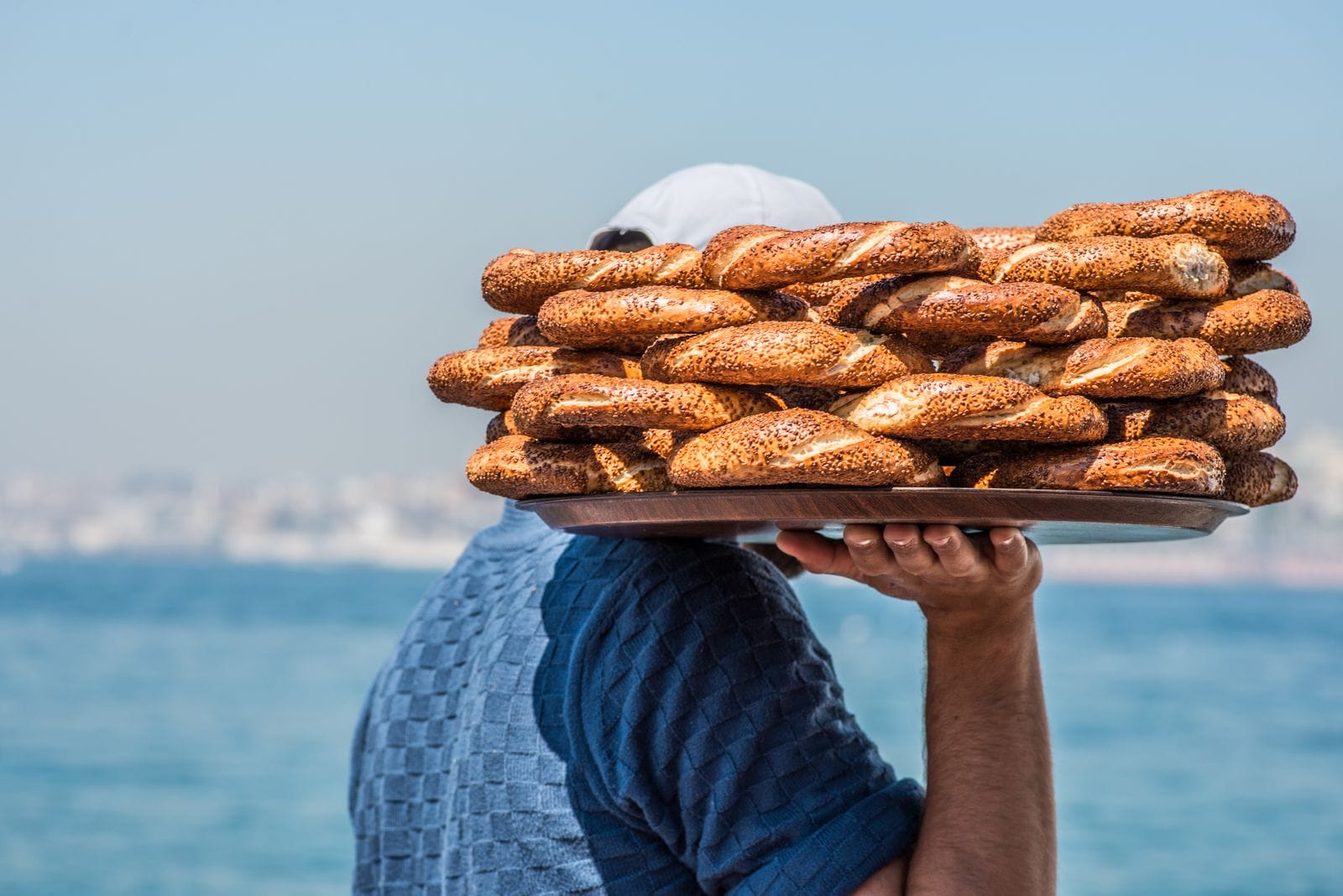Located near the end of Akşemsettin Street in Istanbul’s Fatih district is a small yogurt shop that radiates history. Barbaros Yoğurtçusu has been around since Kemal Kurap’s grandfather Abbas came to Istanbul from Albania at the dawn of the 20th century and established the business in 1918.
The current location in Fatih was opened in 1946, but the brand’s name comes from its original locale at the Barbaros Hayrettin Paşa ferry pier in the district of Besiktaş, named for the legendary Ottoman naval commander. Like the owners of other classic dairy shops in the city, the Kurap family belongs to a rich tradition of Balkan dairy producers that made their way to Istanbul in the latter years of the Ottoman Empire.
“There are no chemicals in a single one of the items that we produce. Everything is natural,” Kemal Kurap says, adding that they produce on a small scale and would not be able to maintain the same level of quality if they converted to factory farming. Their farms are located in the rural suburb of Çatalça, at the westernmost point of Istanbul.

Barbaros makes and sells milk-based desserts, butter, kaymak (clotted cream) and other dairy products, but the main attraction – as its name suggests – is the yogurt. They have buffalo and cow’s milk varieties, though on the day of our visit they had sold out of the former. So we opt for their full-fat cow’s milk yogurt, which is rich, alive, tangy and tantalizing all at once. (If you don’t think yogurt can be sexy, you’ve probably never been to Turkey.)
Unfortunately, nowadays in Istanbul places like Barbaros are few and far between, with their peers closing in recent years due to old age, gentrification, and the public increasingly preferring mass-produced goods.
“This generation is over. Everyone has turned to the factory and is in pursuit of what is cheap. For example, people buy a dessert that we sell for 8 TL at the supermarket for 5 or 6 TL. It’s not the same quality but they are OK with that,” Kurap says, adding that he uses pure beet sugar in his desserts while the store-bought brands contain fructose or glucose. Their own products are by no means expensive, with an 800g container of yogurt costing just 9 TL ($1.20).
The Kurap family belongs to a rich tradition of Balkan dairy producers that made their way to Istanbul in the latter years of the Ottoman Empire.
If the Barbaros name is to continue on after Kemal and his older brother Mehmet Ali retire, it will most likely do so outside of the family, as their children have pursued other careers – another factor that has endangered the livelihood of Istanbul’s old-school tradesmen.
“My son is a construction engineer, he doesn’t want to do this. My daughter is an architect, and my brother’s daughter is a university professor,” Kurap explains.
The threat that small dairy producers face is one felt across the country’s agricultural sector, which was once strong and bountiful. Today, it is withering under climate change, and the ensuing droughts, as well as high production costs, which make it difficult to turn a profit. As a result, Turkey is increasingly dependent on imports.

“Within 10 years maximum, Turkey will be importing milk. They finished off livestock farming, they destroyed it,” Kurap says, noting that Turkey currently imports hay from Bulgaria and wheat from Greece. He places part of the blame on discount chain markets, which have spread throughout the country, for selling cheap brands that are produced abroad.
The pandemic has hit the business hard, as Covid-19 precautions have banned table service, making it impossible for Barbaros to serve desserts in their 16-person capacity dining room. Kurap says that sales have dropped 30 percent as a result, as people would come to the shop from all over Istanbul on the weekends for a sweet spoonful.
The Kurap brothers remain on their feet, however, which they attribute to the fact that they are an old company and own their shop, making them exempt from Istanbul’s ever-increasing rents. One can only hope that the Barbaros name and the quality it ensures will be enjoyed by future generations, but we nevertheless recommend heading to Fatih for a container of their yogurt sooner rather than later.
Published on January 22, 2021
Related stories
February 17, 2016
IstanbulQuick Bite: In Istanbul’s Old City, two culinary worlds exist side by side – one for tourists and one for locals. On this Istanbul Old City food tour, we go beyond the major monuments to time-honored spots where all of the serious eating is done. While tour buses unload groups for a set menu lunch…
February 28, 2024
Food Tours NDQuick Bite: This full-day Istanbul market tour draws from our best-of list in the European side’s Karaköy neighborhood and the Asian Kadıköy, tied together by a Bosphorus crossing, visiting two markets on two continents. Our favorite Istanbul experiences include exploring the eateries in local markets and crossing the Bosphorus on the public ferry. The route for…
July 18, 2022
IstanbulSettling into our first cross-country journey in Turkey many years ago, we were pleasantly surprised by the comforts of Turkish bus travel. The young garson wore a proper uniform and dribbled cologne onto our hands every hour or so. Tea was served regularly, accompanied by one of our early Turkish culinary discoveries, Eti brand pop…



















































































